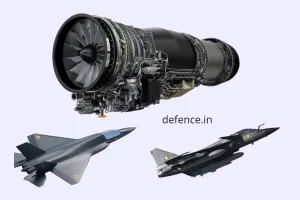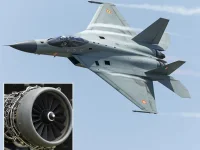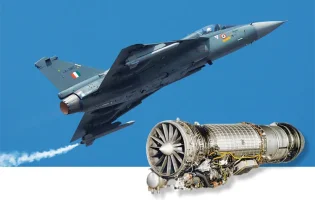- Views: 6K
- Replies: 27
Hindustan Aeronautics Limited (HAL) is facing yet another setback in the delivery schedule for India's indigenous Light Combat Aircraft (LCA) Tejas Mk1A. The first two F-404 engines from General Electric (GE) Aviation, crucial for the aircraft's performance, are now expected to arrive in March 2025, highlighting the persistent challenges within the global aerospace supply chain.
These engines were initially slated for delivery much earlier, with the first batch anticipated in March 2024. However, ongoing global supply chain disruptions have repeatedly pushed back the timeline. GE Aerospace has acknowledged these industry-wide pressures and remains committed to resolving the issues in collaboration with HAL and their suppliers.
These delays have not only affected production schedules but have also raised concerns about the operational readiness of the Indian Air Force (IAF), which is eagerly awaiting the Tejas Mk1A to bolster its air combat capabilities. As a critical component of the aircraft, any delay in engine delivery directly impacts the overall production and deployment timeline.
In response to these challenges, HAL has adapted by utilizing Category B (used or reserve) engines for initial production and testing. While not an ideal long-term solution, this approach allows HAL to keep the program moving forward. Despite the setbacks, HAL remains optimistic about meeting its production targets once engine deliveries stabilize.
The delay in engine supply has broader strategic implications. India has invoked penalty clauses against GE for these delays, underscoring the importance of timely delivery in defence procurement. However, recognizing the strategic importance of maintaining a strong partnership with GE for future projects, including the more advanced F-414 engines intended for the Tejas MkII, India has chosen not to enforce financial penalties.
The upcoming delivery of the first two F-404 engines in March 2025 offers a glimmer of hope. GE has committed to a delivery schedule of two engines per month starting in November 2025, with plans to accelerate production further in 2026. This commitment is expected to help HAL ramp up production and meet the IAF's demand for new fighters.
However, the aerospace sector's ongoing supply chain woes remain a concern. Both HAL and GE are working closely to mitigate these risks and ensure the Tejas Mk1A program stays on track according to the revised schedule.




